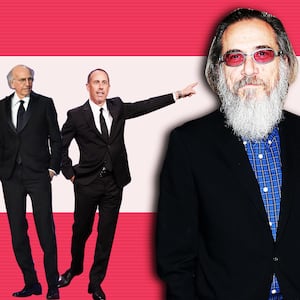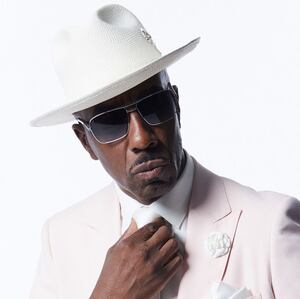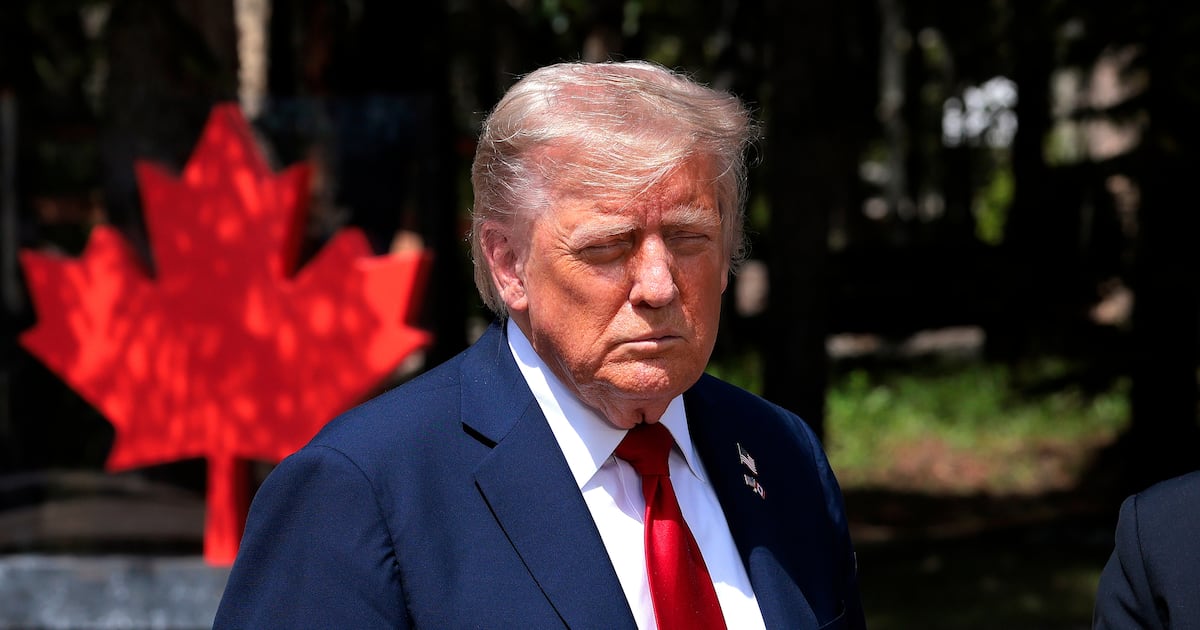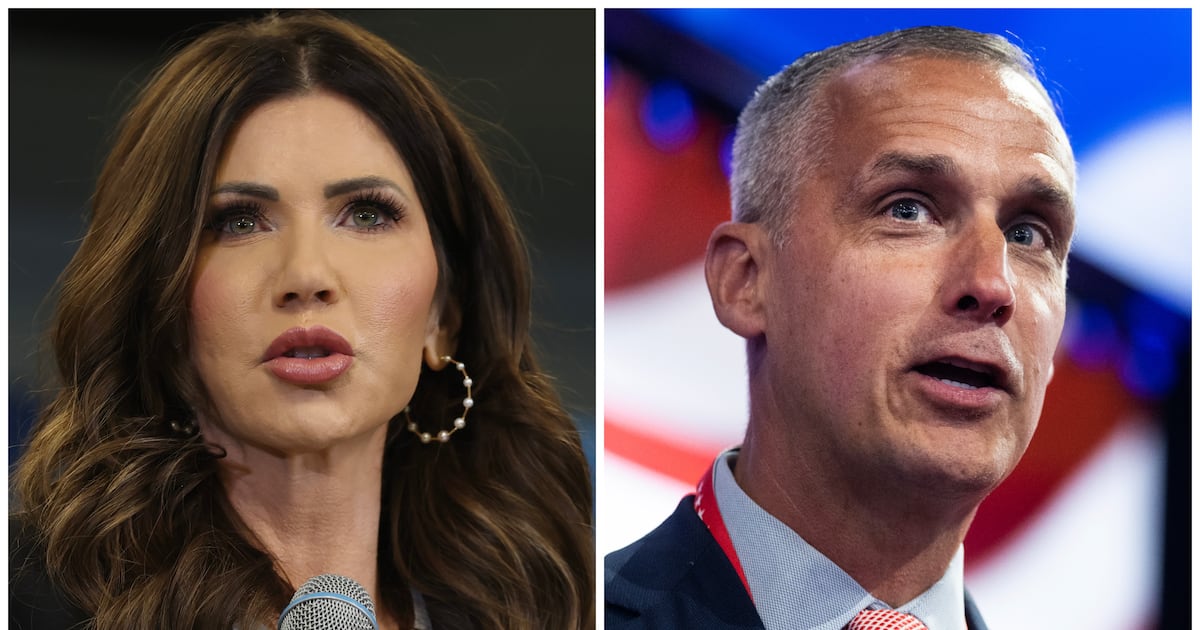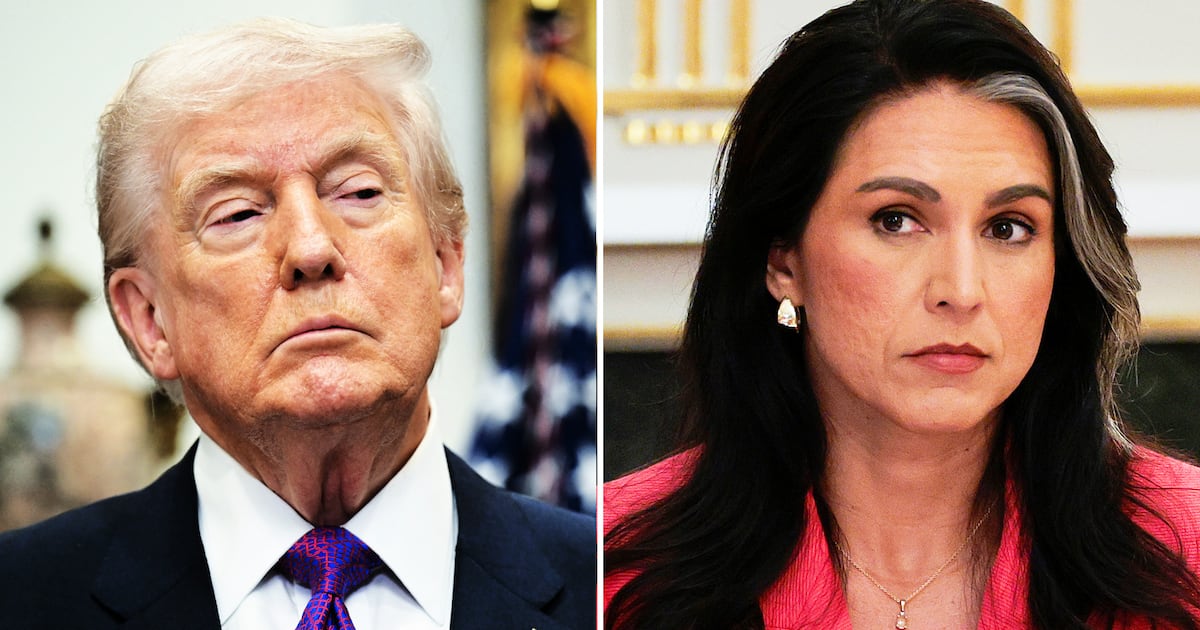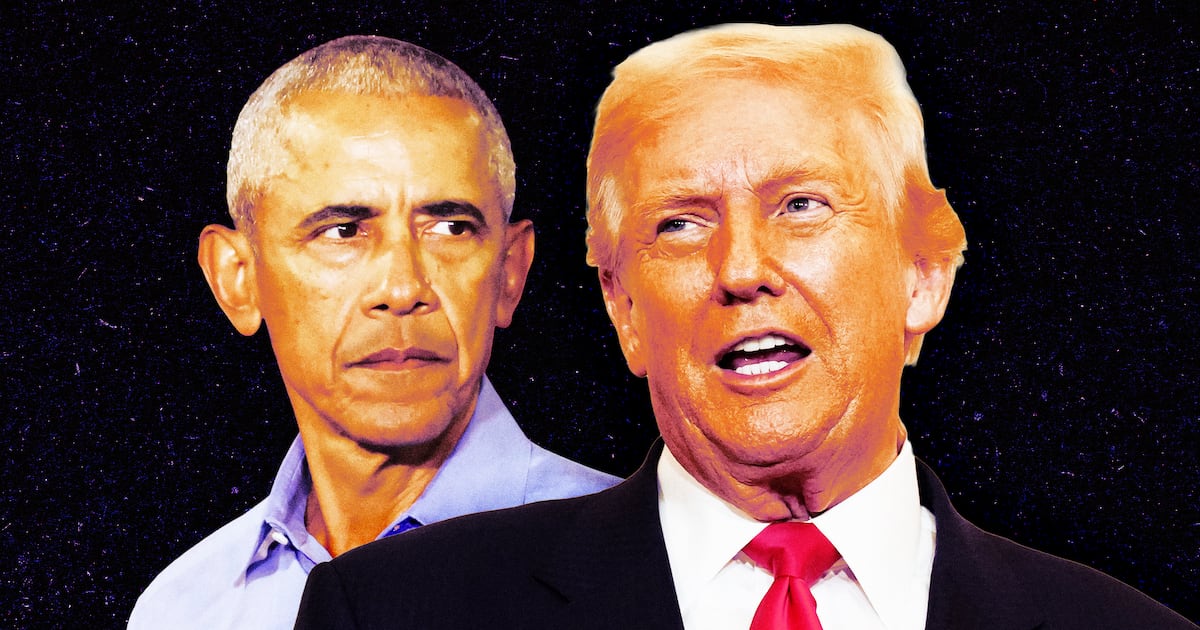Even if you don’t know Larry Charles’ name, his work is inescapable.
He spent years as a writer on Seinfeld before starting his career as a director on shows like Curb Your Enthusiasm and movies like Sacha Baron Cohen’s Borat and Brüno. Now, after swearing off Hollywood, he’s back with what might be his most “transgressive” movie yet: Dicks: The Musical, a truly deranged comedy about two “straight” twins who were separated at birth and ultimately fall in love.
In this episode of The Last Laugh podcast, Charles reveals why this was the project that got him to narrative filmmaking and shares stories from the sets of Seinfeld, Curb, Borat, and more. Plus, the director opens up more than ever before about the major falling-out he had with longtime collaborator Larry David after HBO pulled their documentary project at the very last minute.
When I first spoke to Charles for The Daily Beast back in early 2019, he told me he had reached a point in his life where he “couldn’t make movies anymore,” adding, “I don’t feel the medium is favorable to the kind of thing that I’m doing.” Following a terrible experience making the disastrous Army of One with Nicolas Cage, he revealed, “I had no control over the end result and was profoundly unhappy with it. And I did not want to do that again.”
So how did a movie about “Fucking Identical Twins”—as the original stage show written by and starring Josh Sharp and Aaron Jackson was called—convince him to return to making narrative films?
“It’s hardly a commercial mainstream vehicle,” Charles says now, explaining that the project appealed to him “because it was so unique, so original, so out of the box. And that is what I was looking for. It was a truly transgressive piece that somehow was still entertaining. That’s a very unusual juxtaposition that really attracts me.”
As Nathan Lane—who co-stars in the movie as the pair’s newly out father who is engaged in a bizarre relationship with two disgusting puppets called the Sewer Boys—recently told Seth Meyers, Dicks: The Musical is “the cinematic enema America has been so desperate for.”
Charles says he has spent his career looking for creative endeavors that “challenge the status quo, that question reality, that have fun with the form,” and Dicks was all of those things in one. “I couldn’t turn away from it,” he adds. “I couldn’t ignore it. I knew that I was the person that had been anointed to bring this to the Promised Land.”
When Sharp and Jackson’s script made it to Charles’ desk, he recalls it being the “funniest thing I had read in years,” comparable to the first Seinfeld scripts he read before the show got picked up or seeing Baron Cohen’s early Borat videos. “This was as funny and as unique and original and a distinctive voice as anything I had been personally exposed to, so that got me very excited.”
Below is an edited excerpt from our conversation. You can listen to the whole thing by following The Last Laugh on Apple Podcasts, Spotify, Google, or wherever you get your podcasts, and be the first to hear new episodes when they are released every Wednesday.
The throughline of your career, in a lot of ways, has been pushing the boundaries of what’s acceptable on screen. And it’s something that you’ve run into problems with at times. Is it true that the reason why you left Seinfeld was because you were trying to push the boundaries beyond what the show was ready to be? Specifically, you had an idea for an episode about Elaine buying a gun, right?
Those are kind of two separate thoughts in a way. Yes, for sure, my goal has always been, on Fridays, on Seinfeld, in anything I’ve worked on, to try to push those boundaries, to try to introduce a transgressive element into the mix as much as I possibly can. To be as radical, to be as bold as I possibly can. The gun episode—“The Bet,” it was called—happened not in my last season there, but maybe the season before. And it was just another attempt by me to do an episode that was really extreme. I don’t feel it was funny enough to justify it, that’s one of the reasons it fell apart. And, like Larry [David] had done so skillfully so many times, I couldn’t make a premise like that funny and light enough. It still seemed grim on some level.
But by the time I got to my 80th show or something—“The Fire” was the last episode I did, where George pushes past all the kids to get out of the fire—I love that episode, but I felt like I was reaching the end of my creative pique with those characters. It wasn’t coming organically to me to do more George stories, more Kramer stories, more Jerry stories, more Elaine stories. My mind was bursting with other stuff that I wanted to experiment with, and I’m the kind of person that rolls the dice. I’m a gambler and I don’t do things for [the sake of] career. I could have stayed at Seinfeld to the end. But I wanted to do other stuff, including direct. And so I felt like if I didn’t make this move now, I would let that ship sail by, and I didn’t want to do that. So I left Seinfeld, even though things were great there and I had a very cushy position. I felt like I’d hit the wall.
I wonder how much of that had to do with it being a network show. Did you get sick of having to ride that line of dealing with the censors and not being able to be as out-there as maybe you wanted it to be?
I think on some level, yes. But I deal with that even today. I mean, even on [Dicks], you’re still talking to producers and studios about certain choices.
It’s hard to believe what could have been left on the cutting room floor for this one.
There isn’t much, I have to say. But in terms of Seinfeld, I felt very limited by the four-camera sitcom, live audience thing. I wanted to expand visually. And I did episodes like “The Airport” or “The Trip” or “The Subway” where they’re really on location to a large degree. I started to get more excited about that potential and I wanted to explore that more as well.
How did Curb Your Enthusiasm fit into that? Did you feel like that was a chance to spread your wings a little bit? It’s more documentary style, in a way. Did that give you more freedom to experiment?
Well, just like reading the first Seinfeld scripts—I was in the Curb pilot, I played myself in a little talking-head bit—but when I saw it, I thought, “Wow, this is one of a kind. There’s nothing like this.” And, you know, Larry David is probably the most impactful television thinker of the 20th century, really. I compare his work to any dramatic writer’s work, The Sopranos, anything else, which I love. He’s right up there in that pantheon. And to come up with Seinfeld and then come up with Curb, that’s a major second act that a lot of people do not achieve. So it’s very impressive, and that’s how I felt about Curb when I saw it—this is the next level. But I didn’t think anything about it, except, oh, that’ll be a cool show, good for him. And then he said to me, you should direct one of these, and that was the life-changer. I was like, OK, and suddenly I was a director.
It’s nice to hear you speak about Larry David because I know you have had some strain on your relationship. And I want to ask you about the documentary project that you directed that got pulled the day before it was supposed to air on HBO. You’ve hinted that he wasn’t happy with it, but is there more to the story there? What happened and how did you react when you found out that this thing that you had been working on for, I imagine, quite a while, disappeared overnight?
Well, you know, I think people would love this documentary.
I was looking forward to it.
Yeah, they would see a part of Larry that I’ve known personally for over 40 years. And we had a very intimate conversation. It was two sessions, like eight hours of talking. There were all the clips, and connecting his ideas to his work and all that stuff was really done well, I thought, and in a fun way. His issues, I don’t think, were really about the content. He was extremely pleased with the content. I think he had other issues that I could not resolve. And I think rather than him feeling comfortable saying to me, “I am uncomfortable with this,” he let it—in typical Larry David Curb fashion—drag on until it was almost too late. And then he had to make a radical move to do something about it. I was actually shooting Dicks: The Musical at the moment he called me. So I had to go back to directing the movie.
I also feel like if people get a chance to see it someday, they’ll see it’s a really illuminating documentary about Larry David, like nobody else is going to make. I’m sure there’s going to be a much more mainstream version of a documentary with the usual talking-head interviews. This was just me and him and his work. And covering stuff that nobody even knows about, because I was with him through all these different major paradigm shifts in his life. So hopefully, one day, it’ll come out. And it’s not that our relationship is strained. I was really disappointed, and we just haven’t really talked, and we may never talk. That’s what happens sometimes in show business.
That’s terrible, though. I mean, you’ve known him for 40 years. You’ve spoken about him as the most important person in your adult life.
None of that changes, that’s all still very true. But what I will say for both he and I—and you’re quite a bit younger than me, and I’m younger than him—you’re going to have friends who you know for 40 years who you stop talking to for one reason or another. Not necessarily good reasons, sometimes great reasons. But it does happen. People fall by each other’s wayside. It’s a sad reality of getting old. So you have to adjust to the idea of loss. Loss becomes a big part of life if you’re lucky enough to be around to experience it.
Well, you seem sort of resigned to the fact that there might not be a reconciliation, but I hope that there is, and then maybe there is a way for us to see that documentary at some point. It’s also always odd when the subject of a documentary has that much control over it and the ability to actually kill it.
Sadly, as you know, the documentary form has become, to a large degree, celebrity puff pieces that are called documentaries—
Where the celebrity is the executive producer and running the show.
Exactly. This wasn’t like that. This was not like that. I had free rein until the very end.
Until you didn’t.
[Laughs] Until I didn’t, yeah. And that’s happened to me on fiction movies as well. So I’m used to the idea of like, oh, shit, am I really going to get this through to the end? And then having something thwarted. I’ve had so many thwarted episodes of work that I was excited about that it’s disappointing. But I also know it means I’m doing the right thing.
Listen to the episode now and follow The Last Laugh on Apple Podcasts, Spotify, Google, or wherever you get your podcasts to be the first to hear new episodes when they are released every Wednesday.


